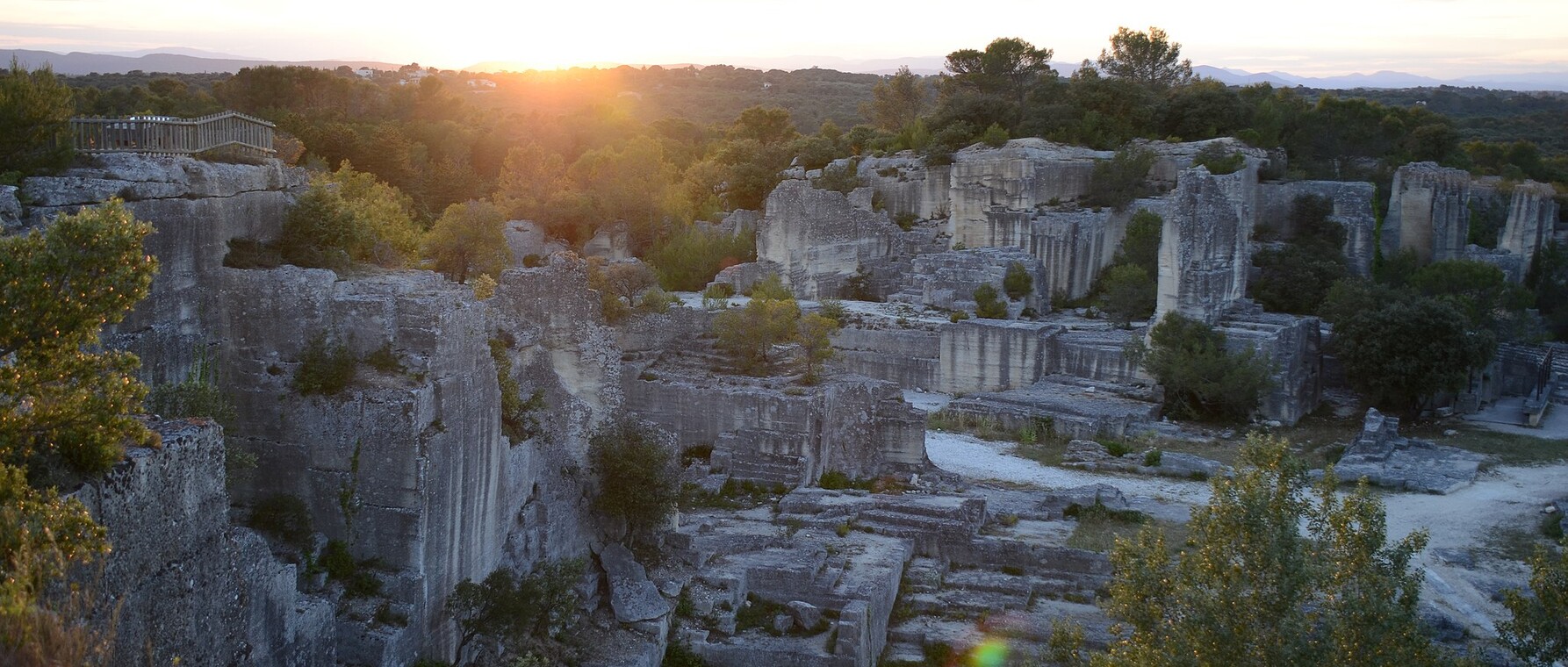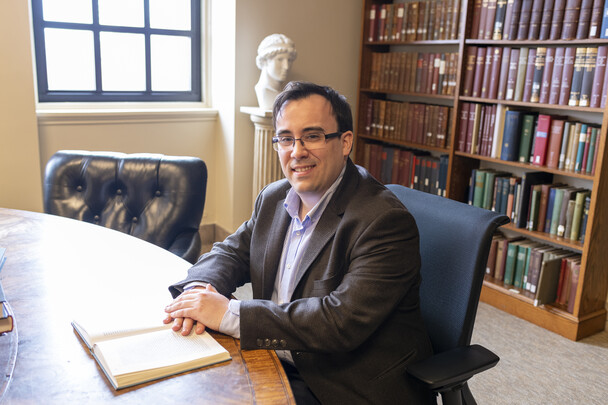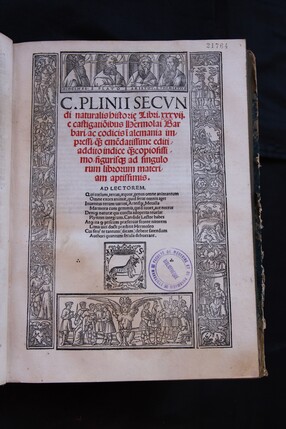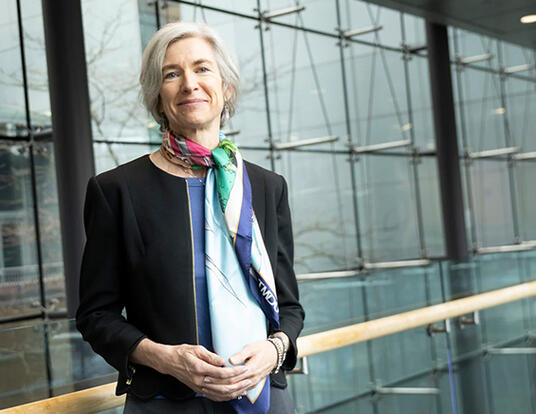Natural History
Environmental degradation, Ancient Rome, and the dangers of the progress narrative

“Deep down, [humans] never thought we could [wreck nature],” wrote the American environmentalist Bill McKibben in his 1989 book, The End of Nature. “It was too big and too old; its forces—the wind, the rain, the sun—were too strong, too elemental.” Then came modernity. Humanity became the major force shaping the natural environment. The global climate started to change and has now become a species-level challenge that threatens to transform—or even end—civilization as we know it.

Classics scholar James Calvin Taylor, PhD ’20, certainly wouldn’t argue with McKibben’s take on the dangers of climate change. But he says that the environmentalist’s understanding of the impact that humans throughout history imagined they could have on nature is flawed—a function more of the story that we moderns tell ourselves about the past than a reflection of reality. In fact, the ancient Romans did believe they could reshape the natural world—alternately congratulating themselves on their power to do so and fretting about the consequences. Taylor says that the writings of the natural historian Pliny the Elder reflect these concerns—and shed light on why it is so difficult for us to come to terms with our capacity to inflict lasting damage on the natural world.
“For no other reason than our fancy”
Our understanding of the ways that humans have thought about their power over the natural environment in the past, Taylor asserts, is often distorted by the desire to see history as a “grand arc of progress.” We start from humble beginnings and rise to the heights of modernity where human beings have the capacity to permanently alter nature—and thus imagine ourselves equal to it. But Taylor says that, in pitting modernity against the past, we vastly oversimplify the narrative. “People in the past are, in many ways, just as capable of imagining similar things, or at least presenting similar questions as we are, even if they don't arrive at the same answers,” he says.
There is, in this narrative, a kind of self-aggrandizement, Taylor argues. All our lamentations about the catastrophe of human-driven climate change are entwined with the thrill that comes from having progressed to the point where we can bend nature to our will—even if it destroys us. This mix of self-flagellation and self-congratulation can prevent us from seeing the past accurately and learning the lessons it has to teach us.
“Are we really grappling with our responsibility, or are we using history as a way of increasing the profile of humanity in some way by constructing a great tragedy of power bringing itself low?” Taylor asks. “Because another way of looking at the history is simply that actions have consequences over time. There are ways of framing the story that concentrate more on greed or stupidity than power.”
Enter the Roman Empire. Taylor says that the Romans also struggled with a sense of sorrow about the ways in which they were altering nature, along with feeling proud of—and justified in—what they were doing. He finds this tension perhaps most prominently in the writings of Pliny the Elder (23-79 CE), author of the massive Natural History, an encyclopedic work whose subjects range from astronomy to zoology.
“Pliny says that nature has designed itself for humans to use it,” Taylor says. “That then raises the question of ‘What are the limits of that use?’ And he never resolves that tension because it’s hard to say, ‘This is a problem,’ when you have a view of nature in which everything serves the purpose of direct utility for humanity. We share, in many ways, that view of nature. It’s one of the things that makes it so hard for us to change our behavior in response to climate change.”
At the same time, Pliny can’t turn away from his concerns about the Romans’ relationship with nature. Nearly two thousand years before our current discussions about sustainability, the ancient writer worries that the empire is doing permanent damage to the environment, making such extensive use of nature that it threatens to lose its integrity on a structural level. The main culprit for us is the greenhouse gas that is emitted from our homes, vehicles, factories, and livestock. For Pliny, it’s Rome’s extensive quarries. “Promontories are exposed to the sea and the nature of the world is being flattened,” he writes in Natural History.
Pliny says that nature has designed itself for humans to use it. That then raises the question of ‘What are the limits of that use?’
“Pliny is concerned with the scale of Roman consumption,” Taylor explains. “Mountains are a defense against water, which he sees as an aggressive element. They direct rivers and form a barrier against the sea. But the quarries threaten to break them down, allow the rivers and oceans to overrun the earth, and make it impossible for humans to live on the surface. That concern about rising sea levels is certainly something we share as our climate warms and the ice caps melt.”
Moreover, Pliny finds in Roman consumption the same kind of moral hazards that seem often to seep into the debate about the environment today. He laments the loss of one of nature’s marvels for what he sees as crass consumerism, writing “We quarry these mountains and drag them away for no other reason than our fancy, though it was once marvelous to have crossed them as well.”
“It’s a kind of moralizing that’s familiar to us when we, say, rail against enormous sports utility vehicles that use a lot of fuel,” Taylor says. “Maybe someone’s building an aqueduct and quarrying stone for it. Fair enough. But someone who’s quarrying marble to build a nice entrance to their house? That’s more unacceptable to Pliny. And so, he’s attacking the use of a natural resource not only because it outstrips nature’s ability to regenerate, but also because he feels it’s unjustified.”
Beyond the Progress Narrative

When we subscribe to a progress narrative where only moderns can imagine environmental catastrophe, Taylor contends, we lose access to the way that thinkers like Pliny wrestled with questions that confront us in an age of global climate change. The risk of treading the same ground without this knowledge is that our solutions may employ the same kind of thinking that brought the crisis upon us in the first place; specifically, that technological development, which precipitated climate change, will rescue us. As a result, Taylor says, we ignore other, more practical possibilities.
“When you buy into this grand narrative of progress,” Taylor says, “it's easy to project onto the climate crisis either a tragic story in which we're all going to die or a heroic story where our technological genius saves us and the trajectory of progress continues. In reality, there’s a lot of middle ground with difficult realities that we're going to live with, and which are not evenly distributed between the peoples of the world.”
The study of antiquity can be helpful in the effort to confront climate change, Taylor says, because it offers a kind of mirror, through which we can see more clearly our narratives about humans and their impact on nature. And while humans’ material living standards and technological capacity have improved, ancient thinkers had habits of mind that we have lost living in the digital world—ones that could help us find our own way through the environmental crisis.
“The progress narrative implies that humans have undergone some kind of miraculous change,” Taylor says. “But in many ways, ancient thinkers were much better at making deductions based on very limited evidence. Without computers and the Internet, they probably had better memories and, importantly, better observational skills that enabled them to exist in and respond to the natural environment at a basic level. They didn't have the technology we do, but in some ways, the kinds of skills the ancients did have—the ability to think differently and to study nature differently—are just as valuable as the ones we have now.”
Photos by Molly Akin and Courtesy of Wiki Commons
Get the Latest Updates
Join Our Newsletter
Subscribe to Colloquy Podcast
Simplecast Stitcher




